If you want to explore your family history and heritage, Ancestry.com might pop into mind. This DNA testing service has been in business since 1983. Today, it’s the most widely used genealogy and ethnicity discovery tool, with a vast database of DNA and historical records.
Still, the service has changed considerably over the years, and some features, such as health insights, have been discontinued.
So, to help you decide whether the service is still worth your time and money, this Ancestry.com review will discuss its features, processes, and pricing so you know what to expect. We’ll also touch on user reviews of Ancestry.com, presenting the company’s benefits and limitations to help you form a complete and realistic opinion.
What is Ancestry.com?
Ancestry.com is a genealogy service with a wide range of tools for exploring your heritage and organizing family history records. You can build a family tree, browse records, and even hire genealogical experts to aid your research.
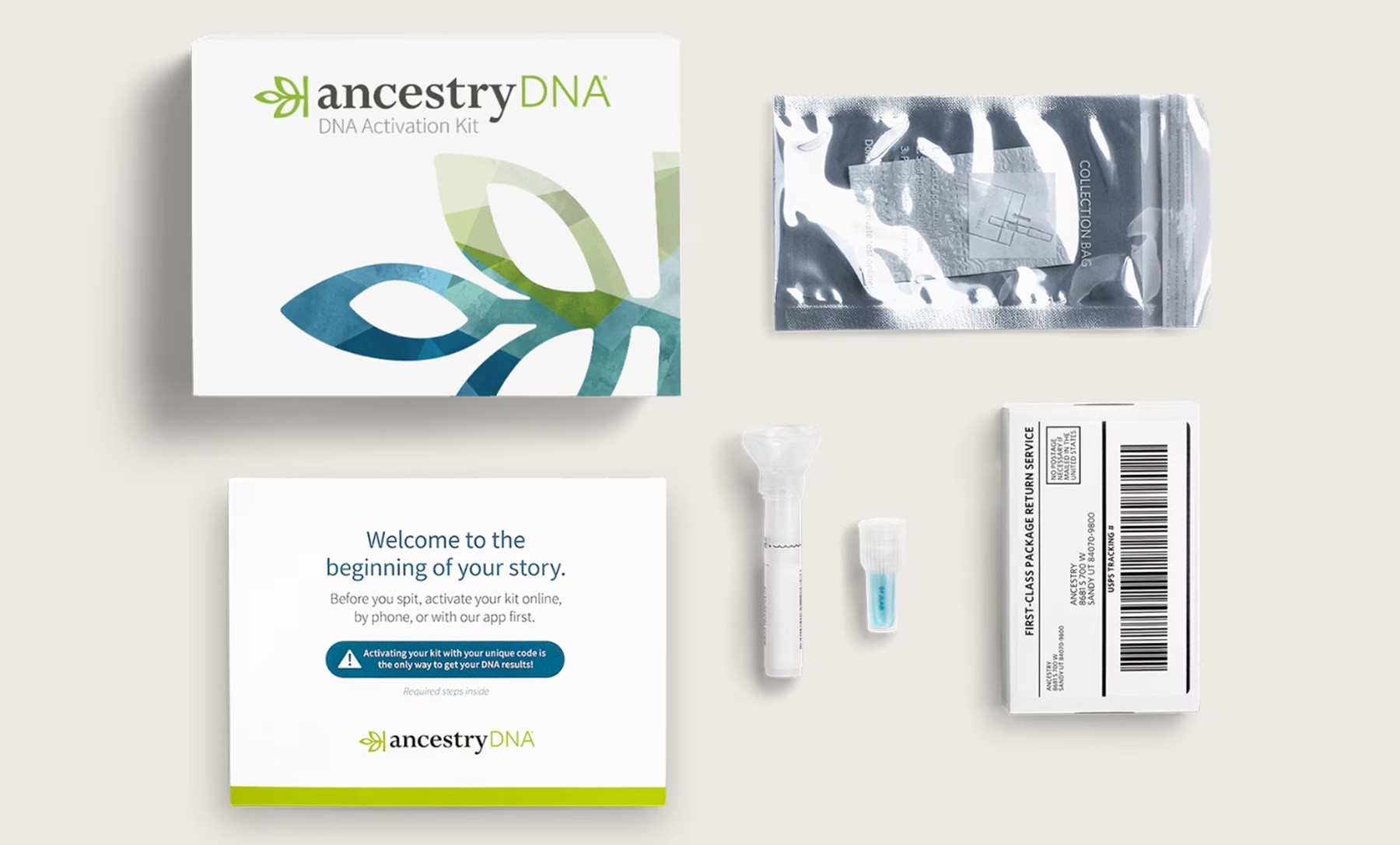
Source: Ancestry.com
Still, one of the most sought-after services is DNA testing, available with AncestryDNA. This service lets you test your genome with a simple at-home kit to uncover insights such as your ethnicity composition and living relatives. Higher tiers can also reveal how your genes affect your nutrition, fitness, and appearance and which side of your family your ethnicity and matches originate from.
These insights are available through Ancestry’s giant database, which includes:
25 million DNA tests
60 billion historical records
130 million family trees
Ancestry.com has by far the biggest DNA database in the world — twice as big as 23andMe’s, for comparison.
How does Ancestry.com work?
You can access the Ancestry.com genealogy platform by signing up for the 14-day free trial, which lets you explore any of the three available packages. These include features such as record search and family tree building.
AncestryDNA is a dedicated service that requires an additional fee, but there are several plans to choose from, with the higher tiers including access to genealogy records.
For a DNA analysis, you’ll need to order a kit, which should arrive within days. Once it arrives, you’ll need to collect a saliva sample and mail it to the lab in the prepaid package. Results should be available within six weeks — you’ll get an email when you can view them on the website. Keep in mind that the turnaround may be longer during busy periods.
Bonus read: Check out this MyHeritage vs. Ancestry.com comparison and see the list of top Ancestry.com alternatives.
Ancestry.com review: Zooming in on 5 key aspects
To give you a better idea of the service specifics and what you can expect, we’ll focus on the following five aspects:
DNA analysis
Types of insights
Accuracy of results
Privacy and security
Pricing
User experience
1. DNA analysis
AncestryDNA relies on microarray-based autosomal DNA analysis, targeting around 700,000 locations of your genome.
This test analyzes your autosomal chromosomes, which you’ve inherited equally from both parents. While this type of analysis is suitable for people of all genders, it doesn’t include information about your haplogroups — markers that allow you to directly trace your lineage on your maternal and paternal side and uncover ancient ancestral origins.
While it doesn't provide haplogroup information, AncestryDNA uses other methods to determine which parts of your DNA come from which parent. It can track your ancestors from as far as 1,000 years ago, though the effective range is typically 200–300 years.
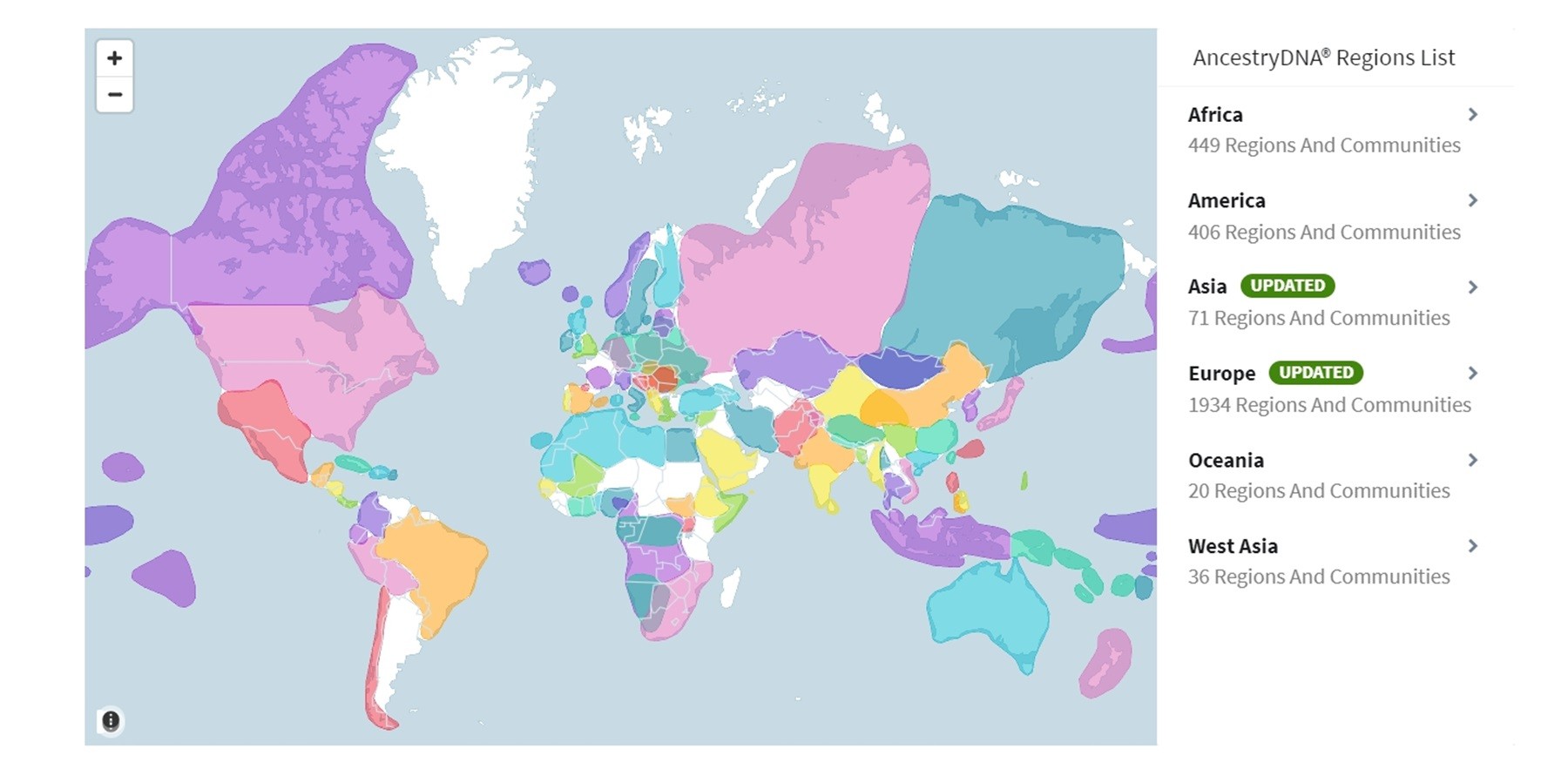
Source: Ancestry.com
While common among commercial genealogical testing companies, autosomal DNA analysis is limited because it looks at only a portion of your genetic data. This type of analysis is suitable for ancestry information but can’t provide valuable and potentially life-saving health insights, such as risks for genetic conditions.
2. Types of insights
AncestryDNA gives you genetic ethnicity estimates, as well as historical and geographic details. You’ll see the regions and communities your ancestors were in and even how they moved through the years. If you enable the feature, you can also discover and connect with living relatives from the database.
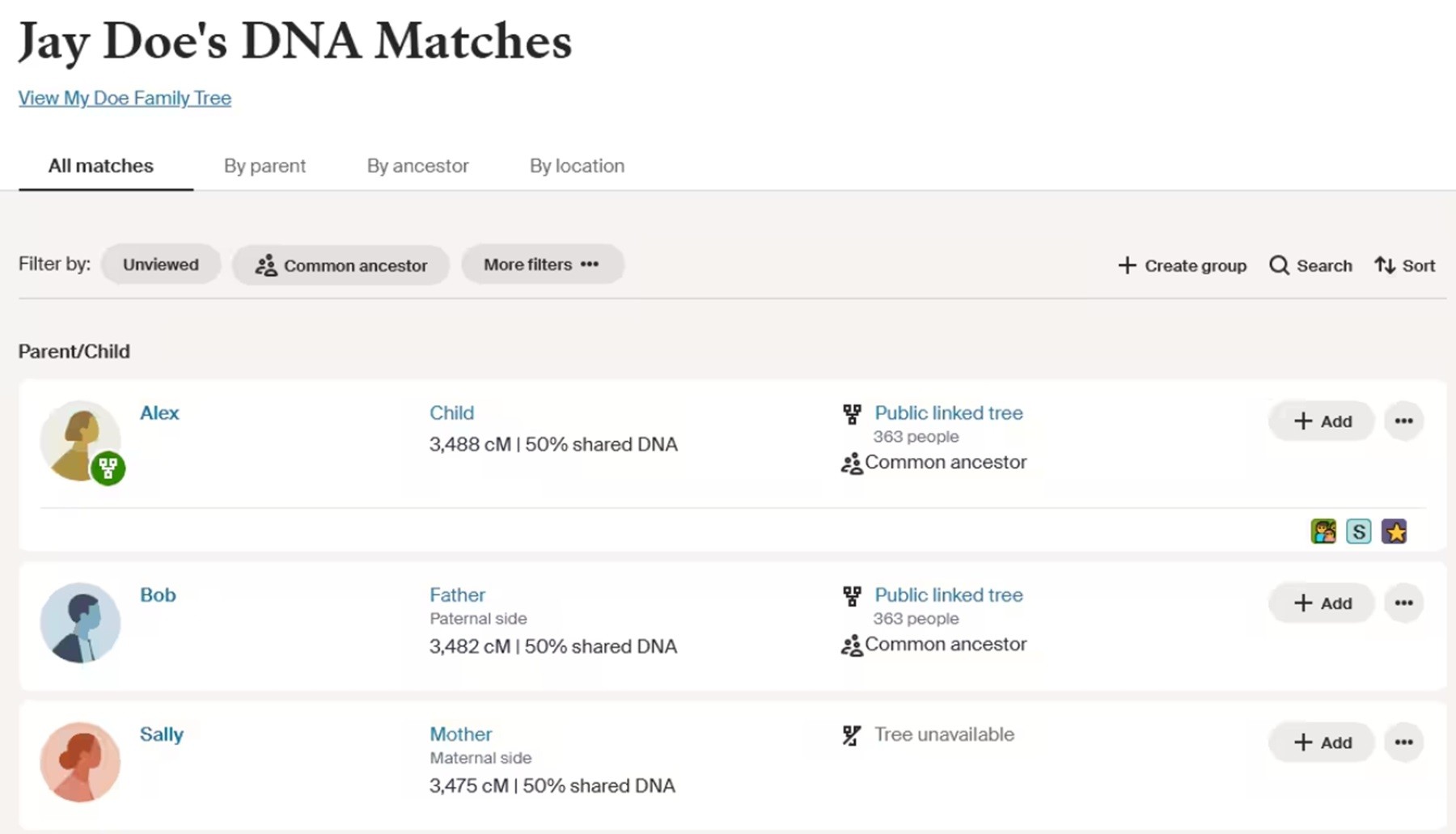
Source: Ancestry.com
If you add a membership to your AncestryDNA kit, you’ll be able to access the local and international database of historical records, which may include your family members’:
Full names
Occupations
Documents
Stories
Photographs
You can also upgrade your AncestryDNA kit to get trait reports and learn how your genes may affect your nutrition, athletic performance, and appearance. This information can be helpful to a degree as it provides basic guidelines for maintaining your well-being.
While Ancestry can give you wellness-related insights, it doesn’t offer health analysis. The company suspended AncestryHealth in 2020, so you won’t get any information about your genetic health profile, disease risks, and carrier status for hereditary conditions.
Tip: To explore your genetic health in-depth, take a clinical-grade DNA test, Nucleus Premium. Nucleus uses cutting-edge whole-genome sequencing technology that analyzes nearly 100% of your genome and detects even the rare genetic differences that most other tests miss, some of which can single-handedly cause chronic diseases.
3. Accuracy of results
Due to its vast database, Ancestry.com can be a valuable source of information about your roots and heritage. Its ethnicity estimates and trait reports sometimes fall short, though.
Looking at Ancestry.com reviews, the quality of reports seems to vary on a case-by-case basis. Many customers liked the service, sharing that they found it helpful and fun.
As for the negatives, some customers reported that they received minimal information. Others found their results broad, vague, trivial, or plain inaccurate, as this Trustpilot reviewer said:
“…majority of the traits especially my appearance results are not at all accurate…My DNA origins also seem to extremely overestimated after getting very different results from other DNA companies and the results from those companies aligned with my family history.”
Bonus read: Explore other genetic testing services through our reviews:
4. Privacy and security
Ancestry.com is transparent about its security practices and employs industry-standard measures, such as encryption, when handling your sensitive data. The company will never share your identifying information with the lab nor disclose it to third parties without your consent.
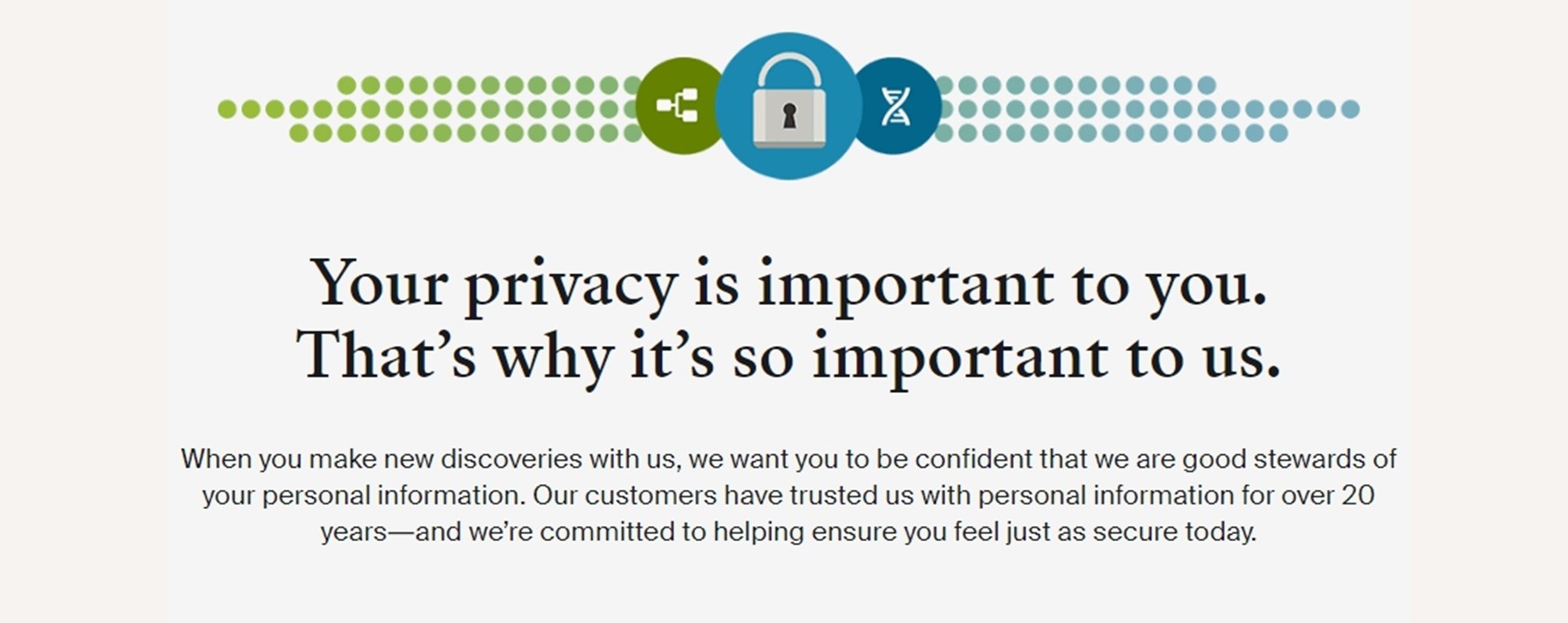
Source: Ancestry.com
Although Ancestry takes numerous safety precautions today, it’s worth noting that it suffered a data breach in 2017, which involved the leaking of 297,000 emails and passwords. Still, the company claims there were no indications of malicious third parties accessing the data.
5. Pricing
Ancestry.com offers various plans and packages for different user needs, interests, and budgets. Platform access entails three membership plans:
These plans don’t include DNA analysis, though. To get this feature, you’ll need the AncestryDNA kit, which costs $99. You can also bundle it with a platform membership to save up:
AncestryDNA + World Explorer Membership: $100
AncestryDNA + All Access Membership: $199
The above memberships include trait and inheritance reports, but you can also get them with the AncestryDNA Plus membership.
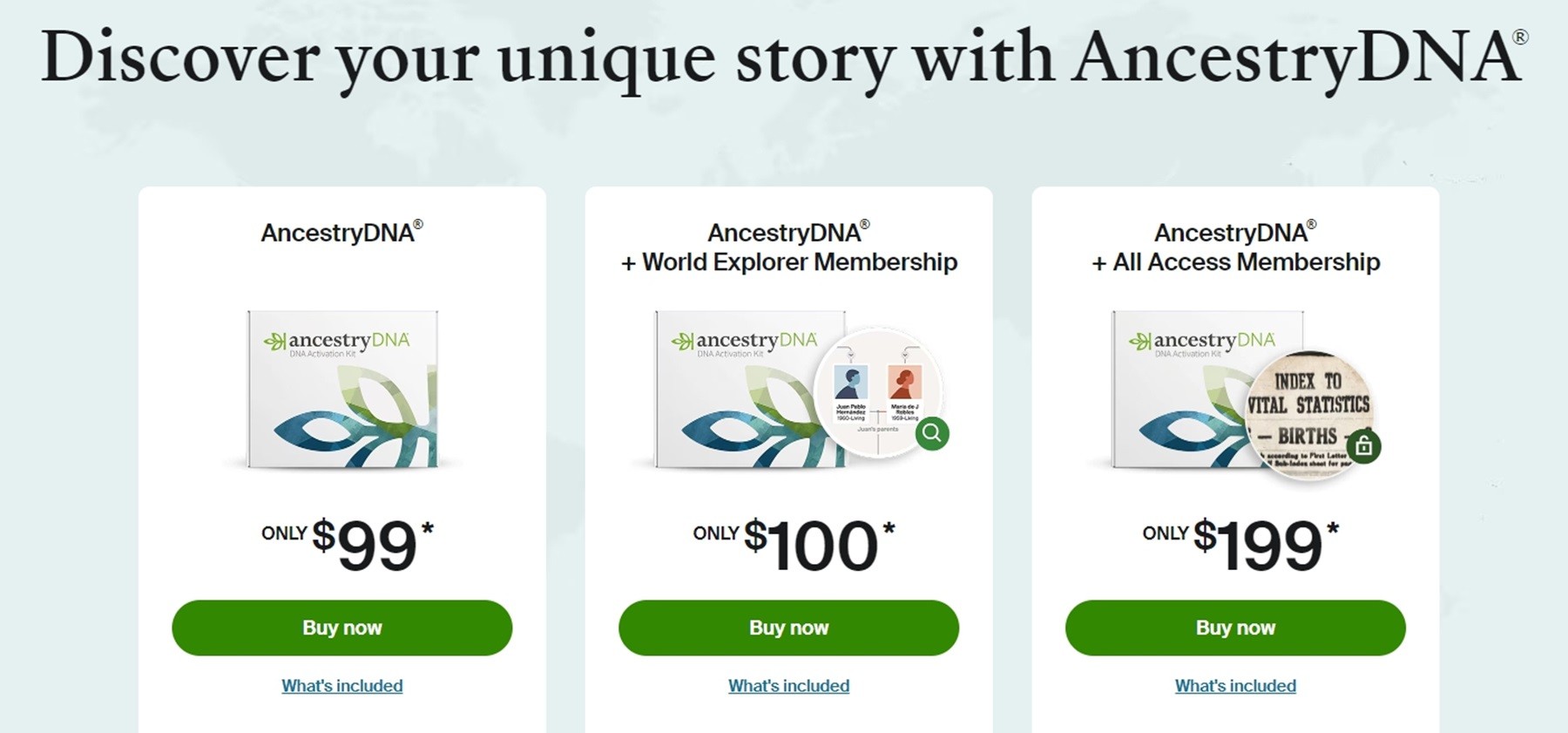
Source: Ancestry.com
Despite the variety of options, some users find Ancestry.com expensive, considering the services they offer. New Ancestry.com reviews reveal that the company has increased the prices recently and locked many features that were once free behind a paywall.
6. User experience
User opinions of Ancestry.com are mixed, as reflected in the ratings on popular review sites (as of September 2024):
Recent Ancestry.com reviews and complaints say the latest platform updates and additions have brought more harm than good. Users have reported issues such as:
Difficulty navigating the user interface
Technical glitches
Being unable to access features they’ve paid for
Pop-up ads that make the site unusable
Another common opinion among users is that some of the new features are excessive and hinder the user experience.
Conclusion: Should you try Ancestry.com?
To summarize our review of Ancestry.com, here’s a handy list of pros and cons:
When it comes to genealogy, few platforms can match the vastness of Ancestry.com’s database and feature selection.
Still, if you’re interested in the practical application of DNA analysis, Ancestry.com is not the optimal choice. While it can provide some information about wellness-related traits, AncestryDNA and its limited analysis method can’t reveal your potential genetic risks and other crucial health information.
To thoroughly understand how your genes affect your health, choose a clinical-grade testing platform like Nucleus Premium. With its state-of-the-art whole-genome sequencing technology, Nucleus can give you a complete picture of your genetic makeup and its effect on your health, allowing you to take better control of your health outcomes.
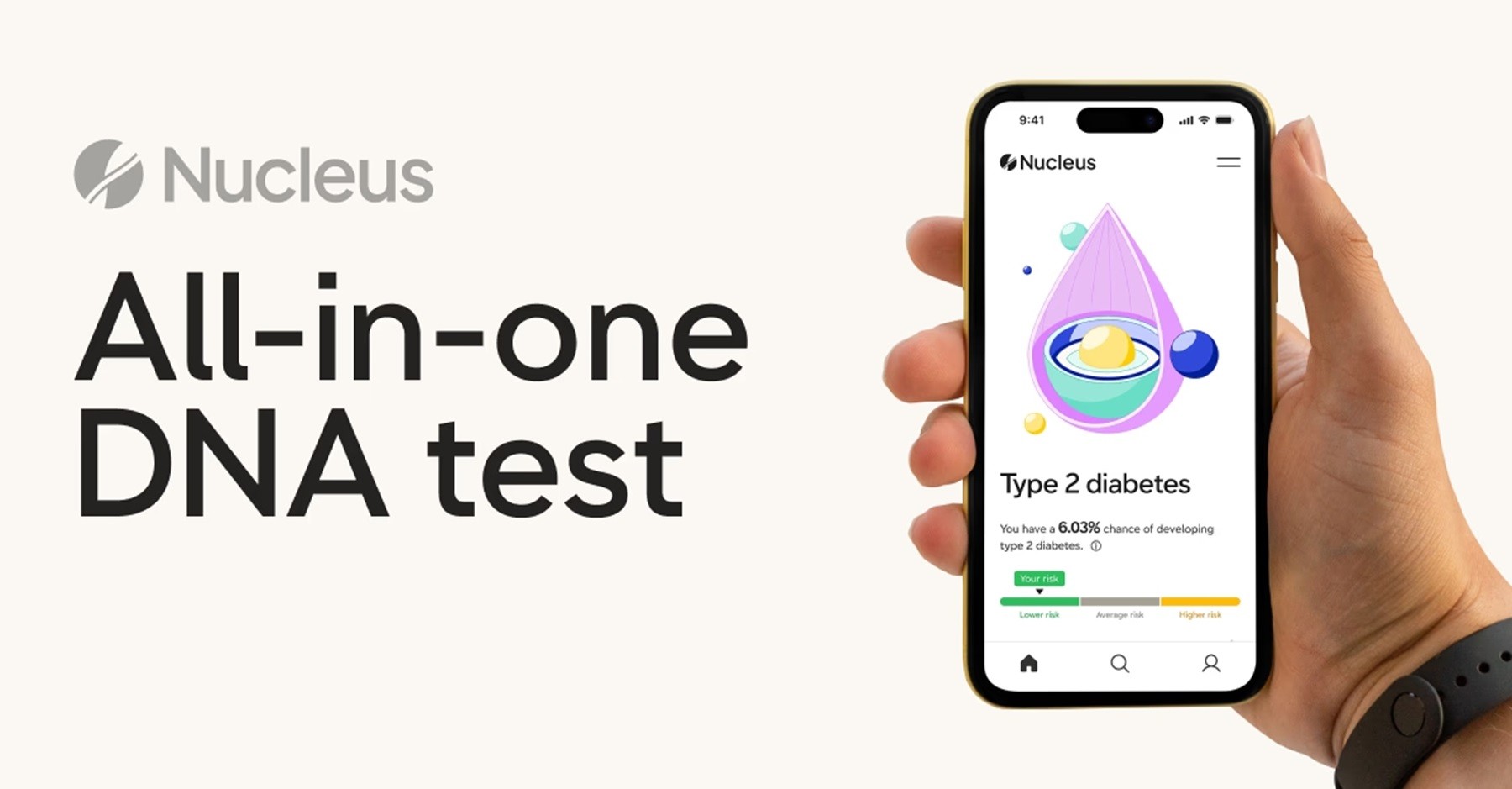
Source: Nucleus
How Nucleus can revolutionize your approach to health
Unlike commercial services such as AncestryDNA, Nucleus uses whole-genome sequencing technology to give you genetic health reports on rare and high-effect variants that most other services miss. Nucleus considers your ethnicity and non-genetic factors, such as age and height, to calculate risk scores, resulting in 99.9% accuracy.
The reports can reveal your risk of developing over 170 diseases and conditions, such as:
Rare cancers
Age-related macular degeneration
Schizophrenia
Besides disease predispositions, Nucleus can help you understand what traits and hereditary conditions run in your family and determine your genetic IQ.
With Nucleus, you can also seek genetic counseling services through SteadyMD and get actionable advice depending on your results.
How Nucleus Premium works
Whole-genome sequencing is available with the Nucleus Premium plan, which costs [PRICE.KIT_SOLO.ONE] — much more affordable compared to other whole-genome tests available today. The price includes access to all reports on your genetic risks and traits and updates in light of new research and lifestyle changes.
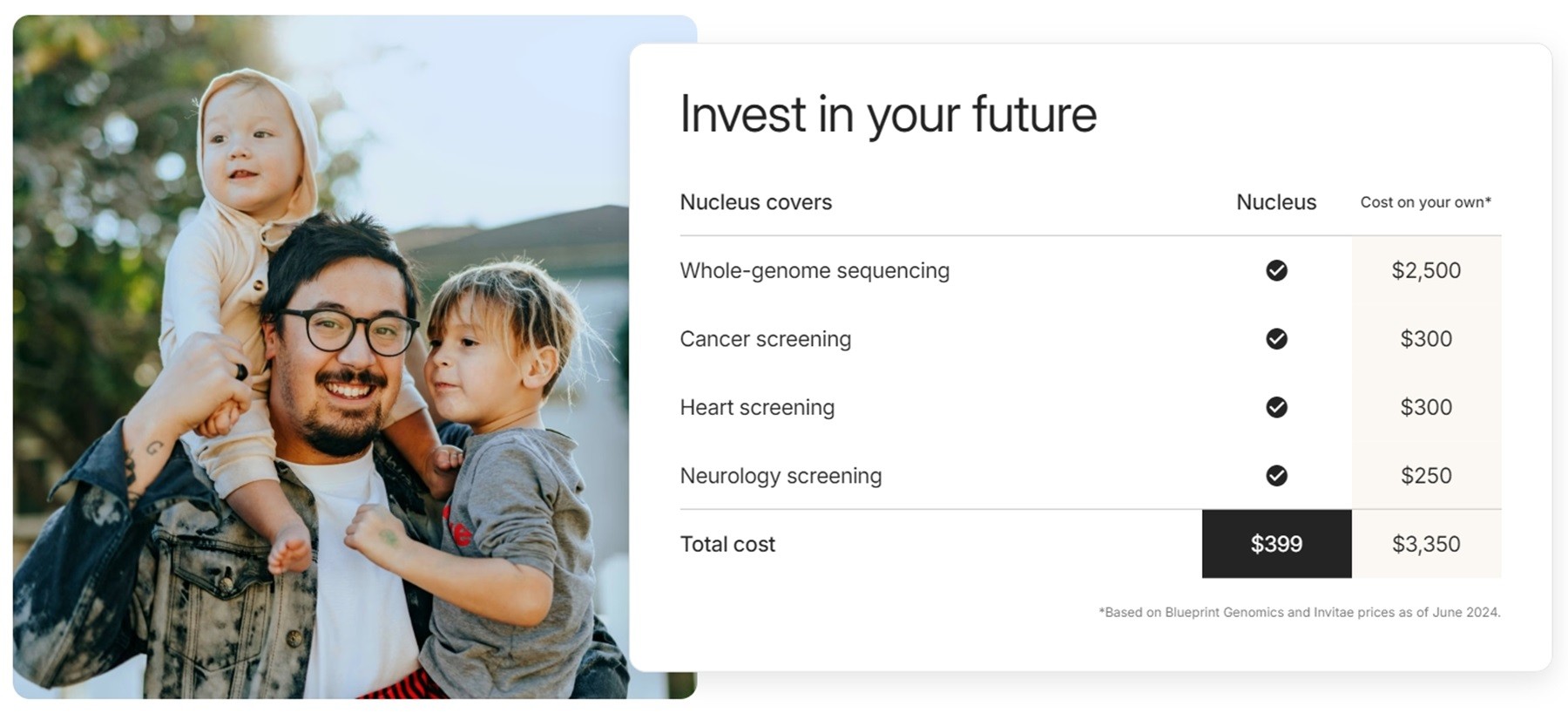
Source: Nucleus
Nucleus offers physician-ordered tests, adhering to stringent quality and security regulations, including HIPAA.
The testing process is fast and simple. You only need to swab your cheeks and send the samples to the lab. You’ll receive your results in around six to eight weeks and can view them in the convenient online portal.
Take a step toward a healthier future with Nucleus
To get started with Nucleus Premium, you should:
Fill out your personal details
Order your DNA kit
Nucleus is FSA/HSA eligible.
You may also like…
Want to learn about other DNA testing services? We have many resources you can check out:
Featured image source: Andrea Piacquadio












